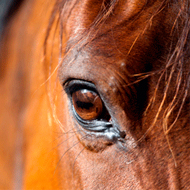Sheikh Hazza's doping suspension reduced

Sheikh Hazza challenged FEI's principle of strict liability. (stock photo)
The Court of Arbitration for Sport (CAS) has reduced a suspension imposed on Sheikh Hazza after a horse he rode tested positive for a banned substance in 2012.
Last year, HH Sheikh Hazza Bin Sultan Bin Zayed Al Nahyan (United Arab Emirates) lodged an appeal against the FEI Tribunal's decision to disqualify and suspend him.
FEI is the international olympic equestrian governing body.
The sheikh challenged FEI's principle of strict liability which means that if a horse tests positive for a banned substance, the rider is held as the 'person responsible' and receives an automatic ban and disqualification, unless they can prove the substance got into the horse's system through no fault or negligence of the athlete.
Sheikh Hazza rode the horse Glenmorgan on 11 February 2012, winning the CE13 in Al Wathba, UAE.
Glenmorgan tested positive for propoxyphene, an opiate analgesic classified as a banned substance under FEI regulations, and its metabolite norpropoxyphene.
As the rider and person responsible, the sheikh was disqualified and suspended by the FEI Tribunal, which took into account a previous rule violation in 2005.
Following this he conducted investigations to determine the source of the doping from mid-June, 2012 to late February, 2014 and lodged an appeal against the tribunal's final decision with the CAS.
CAS rejected the sheikh's argument that making the rider the person responsible is "an unnecessary and/or disproportionate interference with fundamental rights, and so unlawful and therefore outside the powers of the FEI".
However, the CAS took into account the systems put in place by Sheikh Hazza to avoid inadvertent doping. It was decided therefore that his fault was "not significant" and the suspension was reduced from 27 months to 18. The sheikh's disqualification from the event still stands, however.



 The Animal and Plant Health Agency (APHA) has updated its online reporting service for dead wild birds.
The Animal and Plant Health Agency (APHA) has updated its online reporting service for dead wild birds.